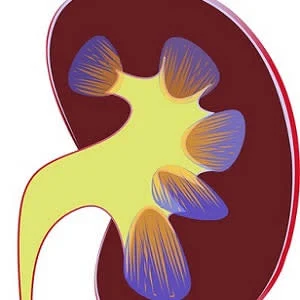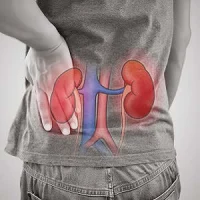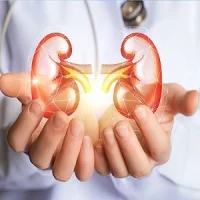Most cases of acute kidney injury (AKI) represent a manifestation of a system-wide disease, which should be addressed in all patients with an elevated serum creatinine. "Acute kidney injury should most often be seen not as a primary disease entity but a marker of a potentially serious, underlying systemic disease; the kidney may be just an innocent bystander suffering collateral damage," says Professor Richard Sinert, DO, Department of Emergency Medicine, SUNY-Downstate Medical Center, Kings County Hospital, New York City Health & Hospitals, Brooklyn, NY.
In his commentary published in the journal Academic Emergency Medicine, Professor Sinert recommends that emergency (ED) physicians should rule out a systemic disease before discharging any AKI patient.
"Once a comorbid condition responsible for AKI is ruled out, an ED physician has the requisite skills to be able to identify and properly treat most broad etiologies of AKI; pre-renal (hypovolemia, septic shock, etc.) and post-renal (urinary outlet obstruction, hydronephrosis, etc.)," writes Professor Sinert.
In the ED, it is also important that nephrologists are consulted for patients who require emergent haemodialysis and patients with suspected isolated renal intrinsic renal diseases (acute glomerulonephritis, interstitial nephritis, transplant rejection, etc.), according to the author.
Once discharged from the ED or inpatient ward, a primary care physician has sufficient expertise to follow most AKI patients. "Nephrologists are also an appropriate choice to follow all chronic kidney disease patients discharged from the ED," the author adds.
His commentary is published by AEM in conjunction with the publication of a review paper, "“Emergency Department Patients with Acute Kidney Injury: Appropriately Discharged but Inadequately Followed-Up?” This review concludes that even mild AKI in discharged ED patients is associated with increased risks of End Stage Renal Disease (ESRD) and mortality. The authors posit that since repeat serum creatinine (SCr) is infrequently followed for discharged mild AKI patients; that an automated system for following SCr and rapid nephrology referral may decrease the untoward outcomes from their AKI.
"While I agree that rapid follow-up of mild AKI patients discharged from the ED is essential; I would like to present my concerns regarding the authors implied cause-and-effect relationship between AKI, ESRD and mortality. Since the data supporting the associations between mild elevations of SCr and untoward outcomes is observational, there is a significant potential for confounding bias," writes Professor Sinert.
He points out that observational studies associating contrast administration with AKI, ESRD and mortality fail to account for the baseline risks of renal failure and death from the underlying condition (MI, PE, etc.) that the contrast study was ordered to investigate. The patient’s underlying condition may be more of a risk of AKI than contrast itself, the professor says.
To adjust for the confounding bias of the AKI risks from patients’ comorbid condition, a counterfactual study design has been utilised.
"This counterfactual methodology has been repeated in multiple studies, all of which found no difference in AKI between intravenous contrast exposed and unexposed patients. Even when the baseline AKI risks in the contrast exposed and unexposed groups are accounted for by propensity-score matching, multiple studies again failed to find a statistically significant difference for the incidence of AKI between the study groups," notes Prof. Sinert.
Source: Academic Emergency Medicine
Image Credit: Pixabay
References:
Sinert, Richard (2018) Acute Kidney Injury: Who Should be Followed-up and by Whom? Academic Emergency Medicine. doi:10.1111/acem.13378
Latest Articles
AKI, acute kidney injury, systemic disease, serum creatinine
Most cases of acute kidney injury (AKI) represent a manifestation of a system-wide disease, which should be addressed in all patients with an elevated serum creatinine. "Acute kidney injury should most often be seen not as a primary disease entity but a m










